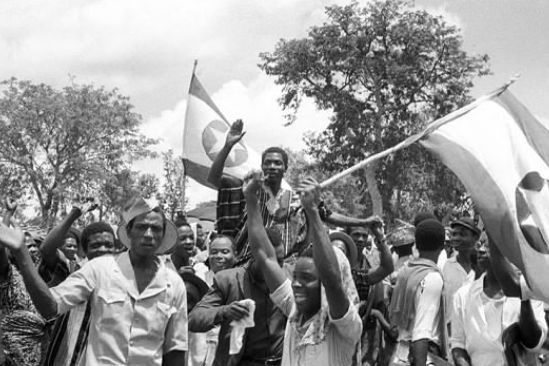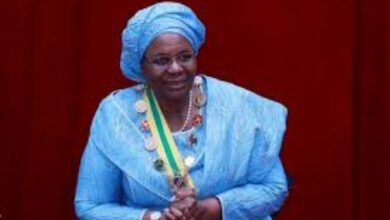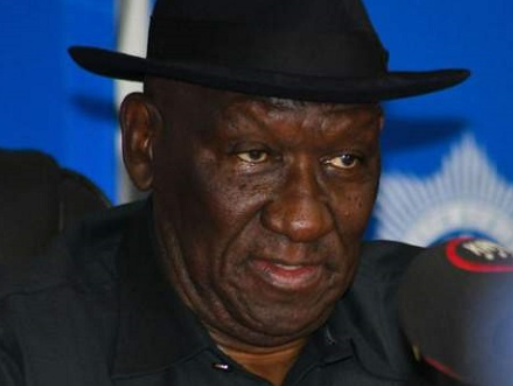2023 Presidential Election: BBC says INEC results show Peter Obi defeated Bola Tinubu in Rivers State

The emergence of Bola Ahmed Tinubu as Nigeria’s president-elect continues to raise eyebrows after a BBC report confirmed that the presidential election in Rivers state was manipulated.
Over the years, Rivers State has been one of the significant election deciders, and pre-election predictions tipped Peter Obi, the presidential candidate of the Labour Party, to have the day.
Still, surprisingly, the candidate of the All Progressive Congress (APC), Bola Tinubu, emerged victorious in the south-south state.
The investigation from the election in Rivers state also triggered probing questions about the identity of the electoral official who read out some unexplained results.
It was gathered that after the end of voting across all the over 6,000 polling units in Rivers state, collation revealed that Tinubu won; however, thorough findings stated otherwise and showed that Peter Obi won with a vast margin in the oil-rich state.
The BBC report says: “We found an increase of just over 106,000 in Mr Tinubu’s vote in the official declaration when compared with our polling station tally – almost doubling his total in the state.
“In contrast, Mr Obi’s vote had fallen by over 50,000.”
The report, however, revealed that after a thorough search on the INEC portal for results across the 6,866 polling units in the state, “we were not able to obtain results from all of them.”
The report says: “Some were incorrectly uploaded, others were missing, even after a month from the date of polling.
“For about 5% of polling stations, the photos of tally sheets were too blurred for us to read. It’s reasonable to assume that the official count would have included these as they would have had the original documents.
“In another 17%, there were no results at all. Many of these would have been places where no voting took place due to security issues or the non-arrival of voting materials. Others had technical problems preventing officials uploading the documents.”
Where the inconsistencies in results emanated
According to a BBC report, it was gathered results in Oyigbo local government area confirmed that Tinubu’s votes were six times larger than the official results, which contrasted with BBC findings which discovered that Obi’s vote had been cut in half.
In the official result of the Obio/Akpor local government, Tinubu polled 80,239 votes, but findings revealed that he only polled 17,293.
Obi’s official result was announced as 3,829 votes, but findings revealed that he polled a whopping 74,033 votes for him on the tally sheets.
The man behind the scheme
BBC report revealed that at the INEC headquarters in Oyibo, the electoral official, during a live telecast, identified himself as Dr Dickson Ariaga and announced the results.
BBC obtained the collation sheet duly signed by INEC officials and party agents, and it was confirmed that the “numbers in this document closely matched our tallies for the two leading candidates (Obi and Tinubu).”
During the live telecast, Dr Ariaga, who worked at the Federal College of Education in Omoku, as stated by him, announced the result, which was tallied with all the results in the collation sheet except Tinubu and Obi.
BBC report says: “But when he reached Mr Tinubu’s APC, instead of saying 2,731 as written on our photograph of the sheet, he read out “16,630”.
Then for Mr Obi’s party (LP) the figure changed again – instead of the 22,289 seen on the sheet, he announced “10,784”, more than halving his vote.”
Who is Dr Dickson Ariaga
The mystery surrounding Dr Ariaga spells something fishy as the electoral commissioner in the state refused to give out his details for him to be reached out to.
It was gathered that BBC reached out to the next electoral officer who sat next to him on the day of the results announcement, but she failed to comment, stating that she had not been authorised to speak with journalists.
When BBC went to the Federal College of Education in Omoku, where Dr Ariaga claimed to be working, the provost, Moses Ekpa, was approached, and he said:
“From our records, both from our payroll and from our human resources, there is no such a name in our system and we don’t know such a person.”
Further checks to track him down on social media helped, as his account was found on Facebook.
Using Amazon Rekognition software to compare the picture on his account and as seen on TV, a 97.2% verification was obtained.
When messages were sent to his Dms, he failed to reply, but relentlessly, messages were sent to his Facebook friends, one of them who responded to be his relative.
After the chat, the said relative has since failed to return calls.
INEC reacts to Dr Ariaga’s mystery
When Rivers state INEC was approached, the spokesperson of the commission, Johnson Sinikiem, said: “If he had presented himself as a lecturer from [the college in Omoku] and it’s otherwise, then he is dishonest.”
Sinikiem revealed that the shortage of time and the need for personnel did not give the commission time for proper verification.
Meanwhile, when the INEC headquarter in Abuja was contacted, they refused to comment due to the ongoing presidential election petition tribunal.
Source: www.legit.ng





